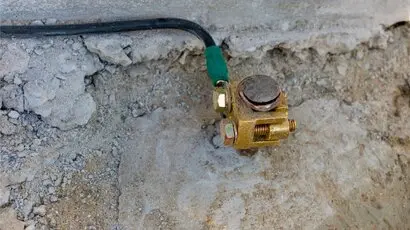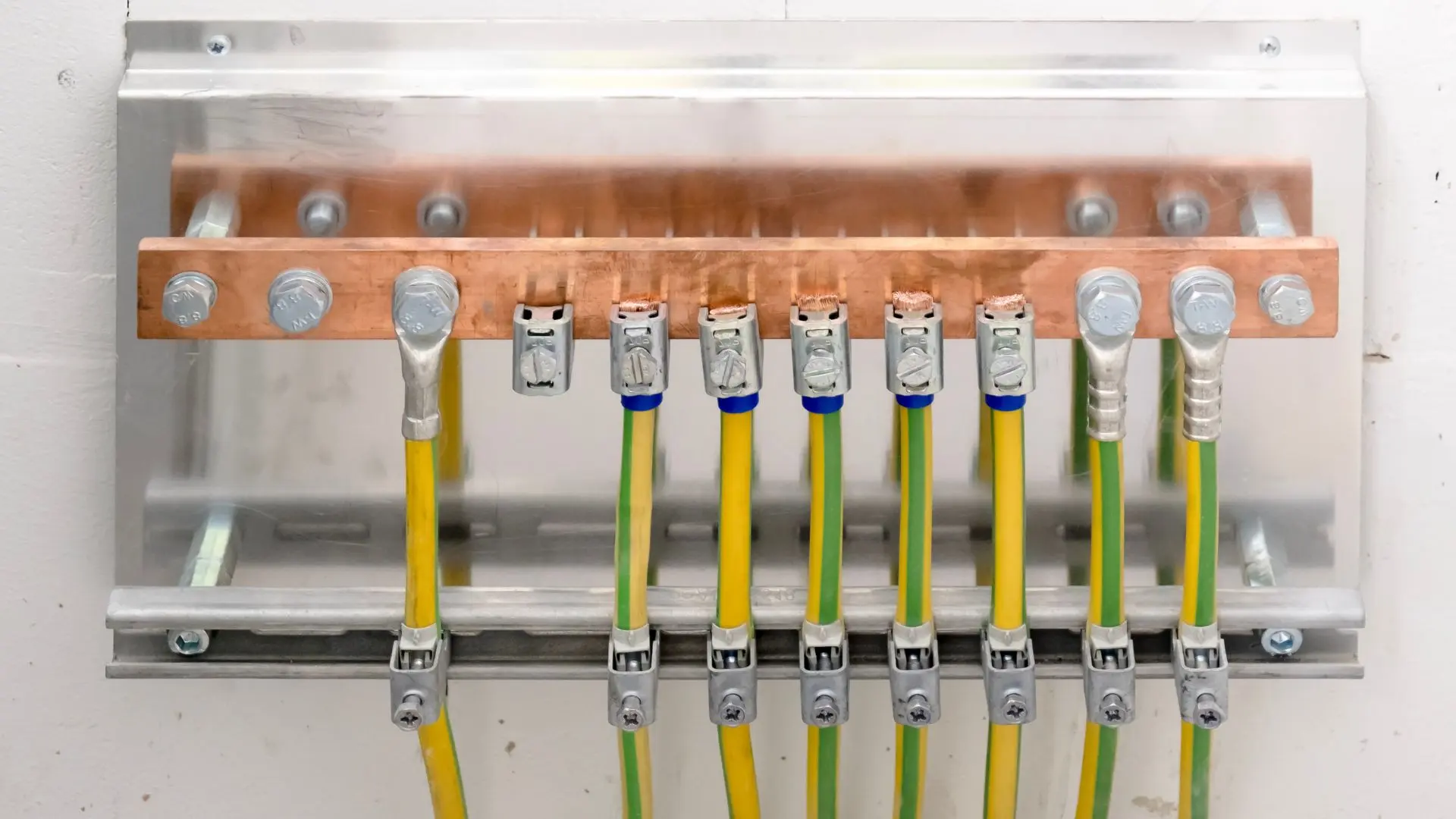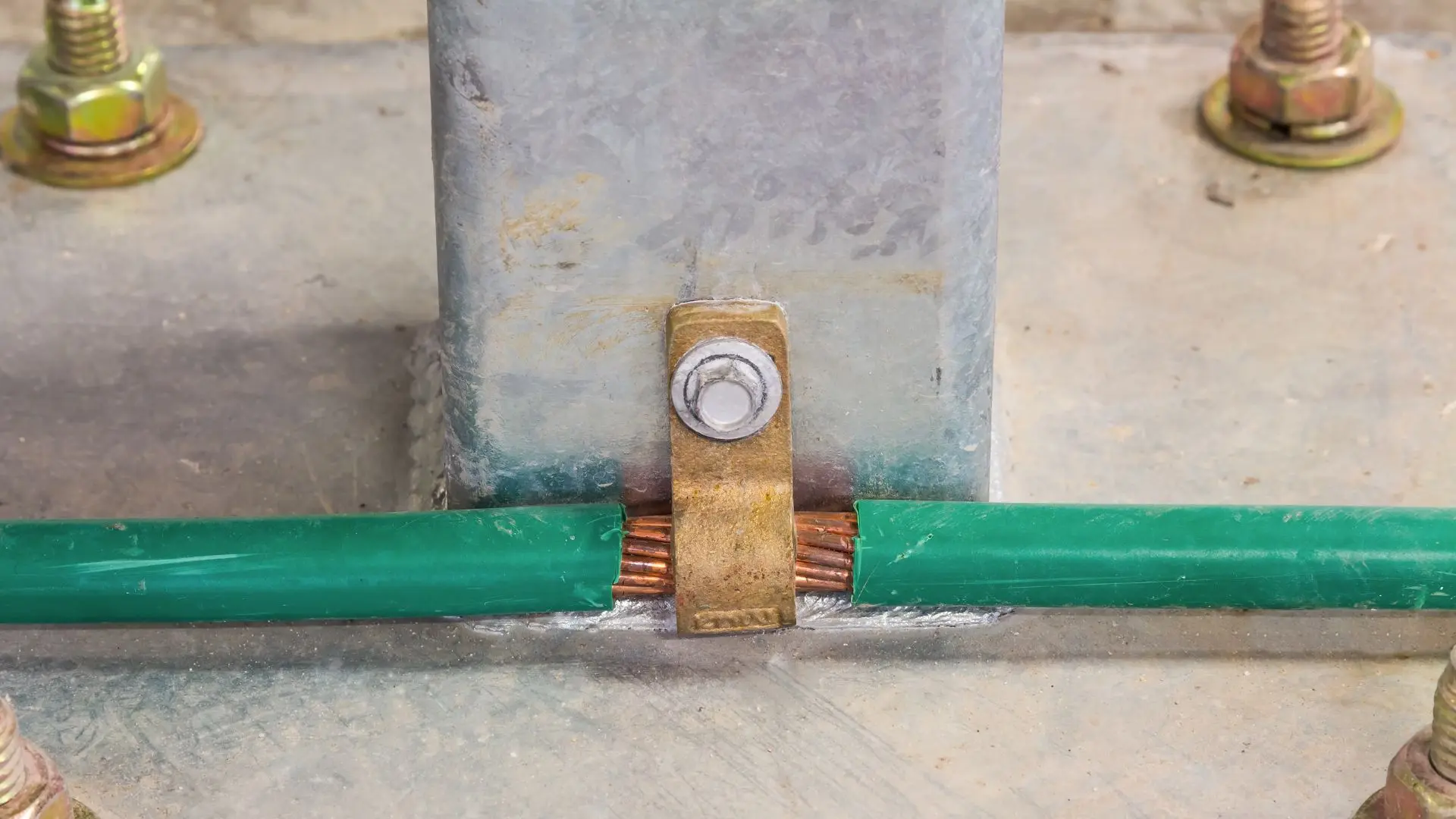
Get your free Melbourne Electrician quote today!
Our team of Melbourne Electricians is here to help you with any questions or concerns you may have. We’re committed to providing you with the best possible service and support.
Ever wondered what grounding in electrical wiring actually does? It’s more than just a technical requirement—it’s your home’s defence against electrical hazards. From preventing electrocution to stopping voltage spikes in their tracks, grounding plays a crucial role in modern safety standards. This
House fires caused by electrical faults are more common than you might think. In fact, nearly 40% of house fires in Australia each year stem from issues like faulty wiring, short circuits and electrical equipment failure. According to the Electrical Regulatory Authorities Council, electrocution incidents also continue to claim lives annually, often due to something as preventable as poor or missing grounding.
For something rarely talked about, grounding plays a massive role in keeping our homes safe. It’s not just about meeting regulations, but a key part of how electricity flows safely through your home.
Grounding creates a direct physical connection between your electrical system and the earth. This gives excess electricity, like that from lightning strikes or power surges, a place to go instead of travelling through your appliances, wiring or worse, the human body. Without proper grounding, your entire home’s electrical system is at risk.
In this article, we’ll explain electrical grounding, why it’s essential, and how to tell if your home might be missing it. We’ll also bust some common myths and show why DIY shortcuts can be downright dangerous.
What is Electrical Grounding?
At its core, electrical grounding is all about safety. When you hear the term, think of it as giving excess electricity a safe escape route. Rather than building up in your home wiring system or damaging electrical devices, grounding sends that energy into the earth, where it can’t do any harm.

A grounding system connects certain parts of your home’s electrical system to a grounding rod (often a metal rod) buried in the ground. That rod acts as a reference point for the entire system, ensuring everything in your home stays at the same electrical potential. This way, if a fault occurs, the electric current flows to the earth, not through people or pets.
Ground wires are usually made from conductive material like copper. They run from outlets, appliances, and your electrical panel to the grounding electrode system. Common grounding points in a home include the metal housing of appliances, the electrical box, and the electrical outlets themselves.
Homes with properly grounded outlets have a d-shaped slot that connects to the ground wire. Ungrounded outlets lack this, making them more dangerous, especially when powering sensitive electronic equipment or high-load electrical appliances.
In contrast, ungrounded systems offer no safe path for fault currents. They rely solely on the neutral wire, which isn’t designed to handle stray voltage or faults.
Why is Electrical System Grounding Important for Home Safety
Grounding isn’t just a technicality, it’s a frontline defence against electrical shock, electrical fires and equipment damage. Imagine touching a washing machine and getting a mild shock. That’s a sign electricity is trying to find a way to ground itself—and you’ve just become part of that path.
A properly grounded electrical system redirects electric current through the path of least resistance, usually a ground wire connected to the earth. This stops stray voltage from using your body as a conductor.
More than that, grounding helps protect your electrical devices and appliances. Faulty wiring or an overloaded power supply can send excess electricity through your electrical circuits. Without grounding, that energy has nowhere to go except into your devices or walls, sparking a potential electrical fire.
Grounding is also vital for the operation of protective devices like your circuit breaker or ground fault circuit interrupter (GFCI). These systems rely on effective grounding to detect irregularities in the flow of electricity and disconnect the power source when needed.
In homes with no grounding or poor grounding, you might notice frequent tripping breakers, flickering lights or shocks from metal frames. Left unchecked, these can escalate into serious risks.
The Role of Grounding in Handling Surges and Faults
Power surges and electrical faults don’t just damage your equipment they can cause lasting harm to your home. These events send a rush of excess electrical energy through your wiring system, looking for somewhere to go. Grounding ensures that a surge has a safe route to escape.
When a surge from the grid hits your home or lightning strikes nearby, grounding helps protect your sensitive electronics by redirecting that excess electricity into the earth. Without such a connection, surges can fry circuit boards, destroy appliances or even spark fires in your walls.
A solid grounding system also helps stabilise voltage levels across your home’s electrical circuits. It creates a common reference point that keeps electricity flowing smoothly and safely, even during high-demand periods.
Improper grounding during a storm or equipment overload can have serious consequences. Instead of flowing into the ground, electrical currents may energise the metal frame of your appliances or arc within the walls, causing fire or electric shock hazards.
When grounding is done right, it helps shield your home from unpredictable energy events. When it’s not, you’re leaving everything from your fridge to your flat-screen TV exposed.

Common Misconceptions About Grounding
A lot of people think grounding is something you only need to worry about in old homes. That’s far from the truth.
Myth 1: Only older homes need grounding. Even newer properties can have faulty or incomplete grounding. Renovations, subpar electrical work or damaged wires can all compromise a home’s grounding system, no matter its age.
Myth 2: Safety switches and surge protectors do the same job . Surge protectors and ground fault circuit interrupters are excellent for additional protection, but they rely on proper grounding to work effectively. They don’t replace the need for a well-installed grounding system.
Myth 3: Neutral wires are the same as ground wires . While both connect to the earth at the electrical panel, they serve different purposes. The neutral wire carries electricity back to the power source, while the ground wire serves as an emergency escape path during faults.
Believing these myths can create a false sense of security, and that’s when accidents happen.
Signs of Poor or Missing Grounding in Your Home
You don’t need to be an electrician or pull apart your walls to spot signs of grounding trouble. Your home’s trying to tell you something if you know what to look for.
1. You get electrical Shocks from Metal Appliances
If you feel a mild electric shock when touching your fridge, washing machine or even your toaster, it’s a clear red flag. It usually means stray voltage is flowing through the metal housing, because the ground wire isn’t directing that electricity safely into the earth.
2. Flickering or Dimming Lights
Lights that flicker or dim for no reason may point to unstable voltage levels. While this could mean other things, it’s often linked to faulty or missing grounding.
3. Frequent Electrical Circuit Breaker Trips
If your circuit breaker keeps tripping without any obvious overload, it could mean your system is struggling to handle electrical faults, and grounding might be the missing link.
4. Electrical Devices Acting Strangely
When devices randomly shut off, reset, or behave erratically, it’s sometimes due to electrical interference. Proper grounding helps eliminate that kind of instability.
These symptoms suggest that your ground wire isn’t doing its job or that the grounding electrode system isn’t forming a strong connection with the earth.
Also, if you’ve recently done any renovations, installed new electrical equipment or rewired a room, now’s the perfect time to get your grounding system checked. A licensed electrician can assess whether your home’s electrical grounding is still up to scratch—or if it needs an urgent upgrade.
Grounding and Compliance With Australian Standards
In Australia, all electrical work, including grounding, must comply with AS/NZS 3000, often called the Wiring Rules. These standards set the benchmark for safe and effective electrical installation in residential and commercial properties.
Improper or missing grounding isn’t just risky, it can also void insurance and lead to legal consequences. If an electrical problem results in fire or injury and your home isn’t properly grounded, your insurer may refuse to cover damages.
This is why all electrical grounding work must be carried out by a licensed electrician. These professionals understand how to test grounding systems using tools like a circuit tester and ensure your home’s electrical system is compliant, safe and ready to handle everyday loads.
Don’t Do This: Common DIY Grounding Mistakes
DIY electrical work might save a few bucks upfront, but it can cost much more in the long run, especially when it comes to grounding.
Here are a few things you should never do:
- Don’t connect a ground wire directly to the neutral wire. It may seem like a shortcut, but it’s dangerous and violates code.
- Avoid using makeshift materials like old wires or plumbing pipes as grounding substitutes.
- Never ignore the need for a grounding electrode system or assume your home is grounded just because outlets have three prongs.
Improper grounding increases the risk of electric shock, electrical interference and even house fires. Plus, it can leave you legally and financially exposed if something goes wrong.
Professional Grounding Assessment and Installation
A licensed electrician will start by checking your electrical panel and electrical box to confirm that the grounding wire connects properly to a grounding rod or grounding electrode system. They’ll also inspect grounded and ungrounded outlets, test the connection at the neutral point, and verify the condition of your ground wire.
During installation or upgrades, the electrician will use approved materials, ensure your system has a common reference point and confirm all components are properly bonded. This includes connecting metal frames, conductive material and other exposed parts to the same electrical potential.
Professional assessments don’t just identify risks, they ensure your system is properly grounded, reducing the chances of shocks, equipment damage and short circuits. It’s peace of mind that’s well worth the investment.
Stay Connected to Safety
Generally speaking, grounding is one of those silent protectors in your home, constantly working behind the scenes, unnoticed, until something goes wrong. And when it does fail, the consequences can be anything but quiet. Electric shock, electrical fires, and costly damage to sensitive electronics can all trace back to poor or missing grounding.
A reliable grounding system plays a vital role in managing excess electricity, especially during lightning strikes or unexpected power surges. It ensures your electrical appliances, outlets and wiring system are all operating at the same electrical potential, reducing the risk of stray voltage flowing through metal surfaces or your body.
This isn’t just about ticking a compliance box; it’s about protecting what matters most. If you’ve recently renovated, added new electrical devices or noticed strange flickering lights or frequent trips, it’s worth having your setup checked. Contact WP Electrical today to book a full house wiring assessment and ensure your home’s electrical system is safe, stable and properly grounded.
Published by: Pascal Harb17 October 2025